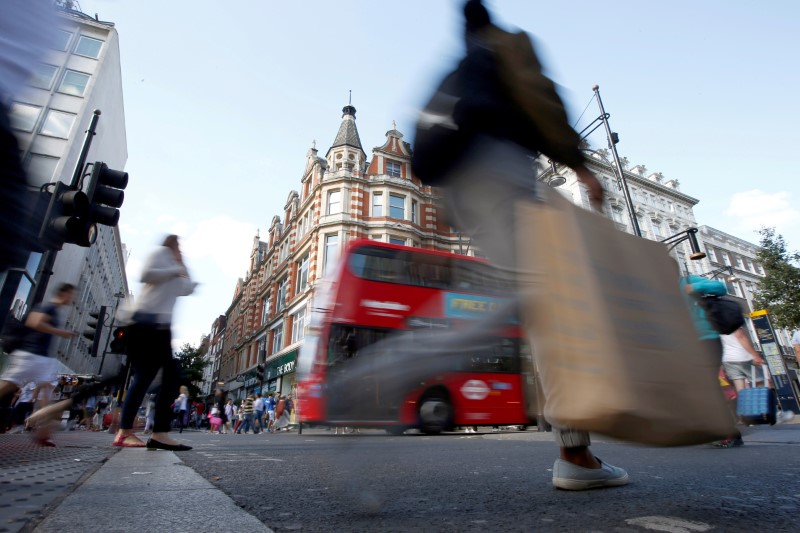LONDON (Reuters) - Britons have raised their expectations for inflation over the coming year due to the plummet in the value of sterling after the Brexit vote, although the number of people who believe interest rates will rise is little changed, a Bank of England survey showed.
The quarterly survey published on Friday showed average public expectations for inflation over the next 12 months rose to 2.9 percent in February from 2.8 percent in the previous survey in November.
Taking a five-year view, Britons expected inflation of 3.2 percent compared with 3.1 percent three months earlier.
British inflation is rising after the Brexit vote and the BoE is watching for signs that it might cause higher pay pressures, something that would add to the case for a first interest rate hike since before the global financial crisis.
Of those asked, 42 percent of respondents in the survey expected interest rates to rise over the next 12 months, compared with 41 percent in November, while 28 percent said they thought rates would stay about the same, an unchanged figure.
Only 6 percent said they expected them to fall, compared with 8 percent last time around.
The BoE and many private economists say inflation is set to carry on climbing sharply in 2017. In the 12 months to January it stood at 1.8 percent and the Bank has said it expects it to peak at about 2.8 percent in the first half of 2018.
After the EU referendum in June, sterling fell as much as 20 percent against the U.S. dollar.
So far, the British economy has largely weathered the initial Brexit shock better than many expected.
But a rise in inflation this year is likely to strain the spending power of households who have driven the recovery in the economy since the financial crisis of 2007-09.

The Bank of England/TNS survey polled 4,243 people in 368 randomly selected areas across Britain from Feb. 10 to 19.